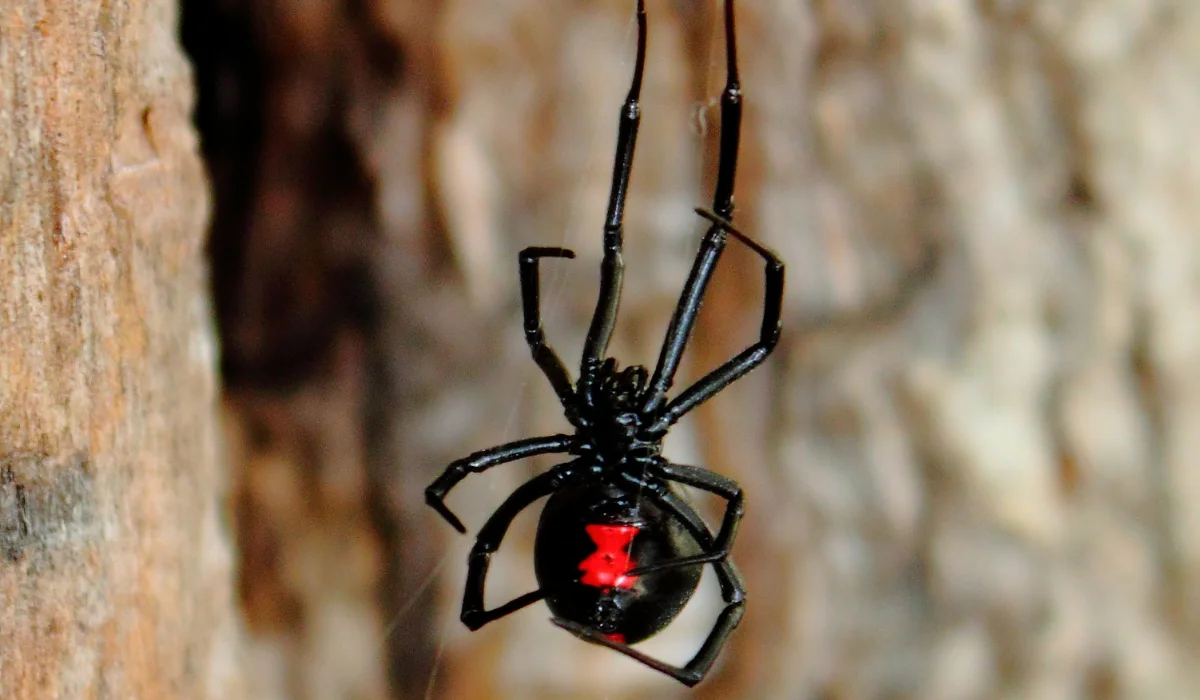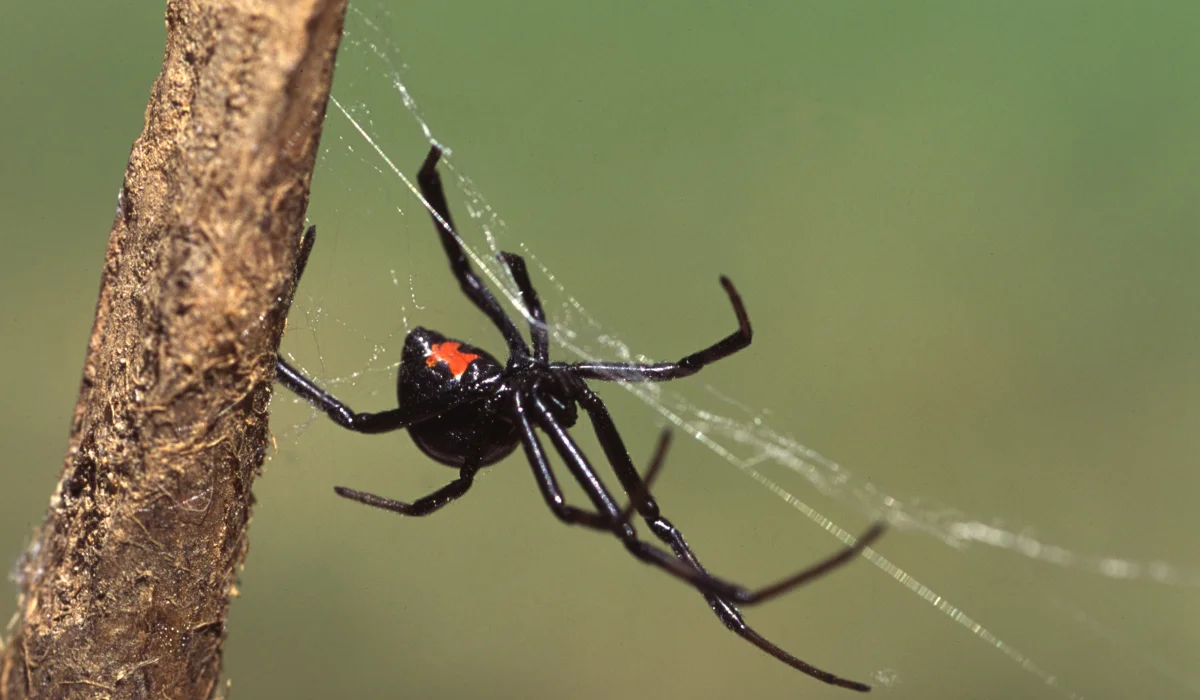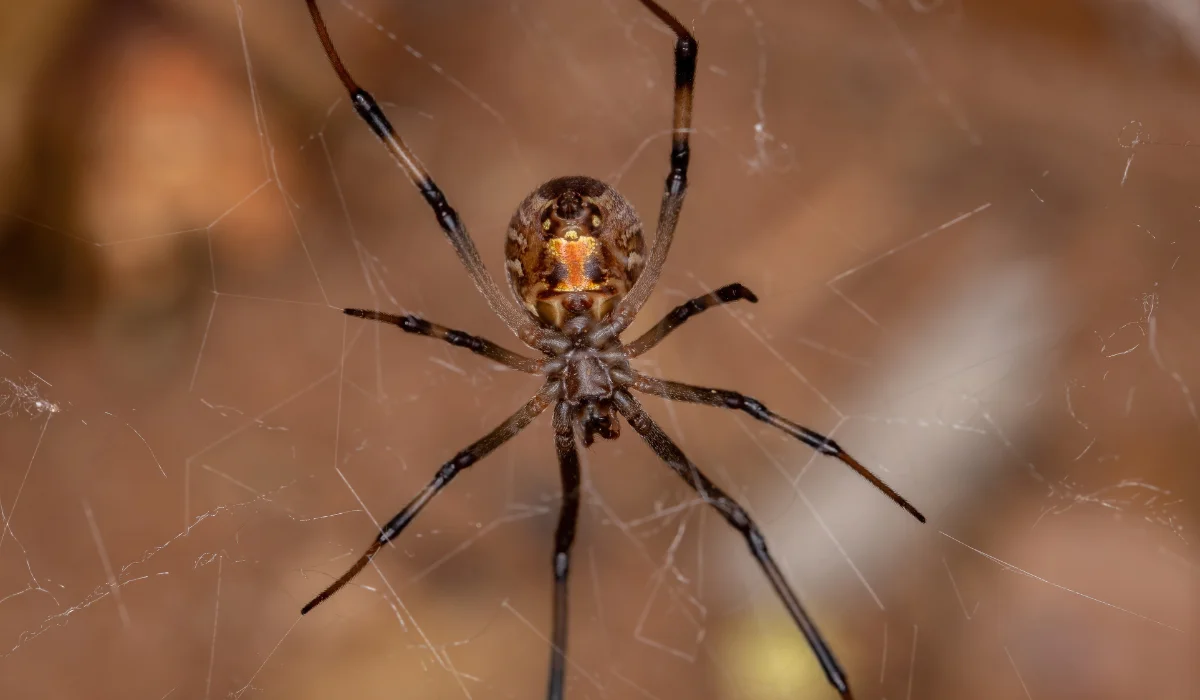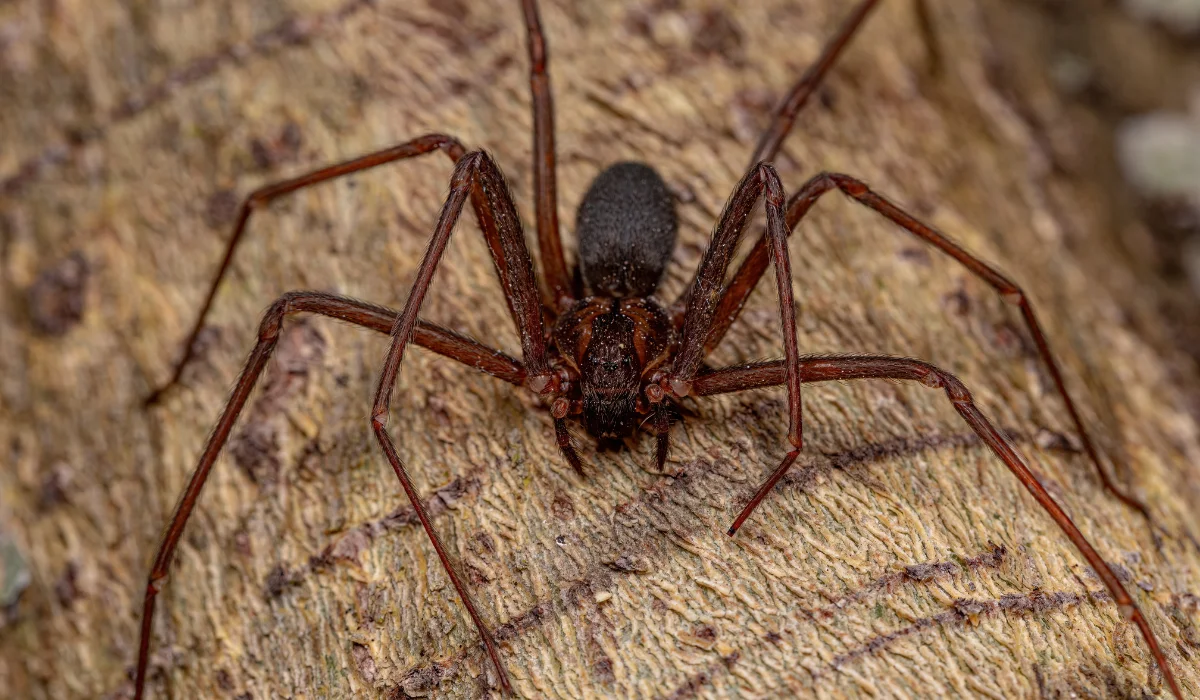
Have you ever encountered a spider in your Louisiana home and wondered if it was dangerous? Many can relate to this situation, highlighting the presence of dangerous spiders in the region. Keep reading to learn about each spider’s unique characteristics and behaviors.
Key Takeaways
- Poisonous spiders in Louisiana include Black Widows, Brown Widows, and Brown Recluses.
- Harmless spiders, such as Wolf Spiders, Orb Weavers, and Jumping Spiders, are also common but are not as dangerous to people.
- Spider bites from poisonous species can cause bad reactions, such as muscle cramps or skin damage, and seeing a doctor may be necessary.
- Pest control professionals can help prevent spider infestations by identifying problem areas and applying treatment.
COMMON POISONOUS SPIDERS IN LOUISIANA
Southern Louisiana is home to a few venomous spiders that residents should know. Three of the most notable species are the Black Widow, Brown Widow, and Brown Recluse Spiders.
Black Widow Spiders

Black Widow Spiders are perhaps the most infamous venomous spiders in Louisiana and other southern states, including Florida. These spiders are easily identified by their shiny black bodies and the distinctive red hourglass shape on the underside of the abdomen.
While they prefer dark, secluded areas, they can often be found in sheds, garages, and woodpiles. Their potent venom can cause severe pain, muscle cramps, and other symptoms. Though bites are rarely fatal, they need medical attention.
Female Black Widows are the primary concern as they are more aggressive and have iconic markings. Males are generally smaller and less venomous.
Brown Widow Spiders

The Brown Widow Spider is less aggressive than the Black Widow but still venomous. It is usually light brown to tan with an orange or yellow hourglass marking on the underside of the abdomen.
In states like Louisiana and Texas, these common spiders prefer similar dark and sheltered environments, such as sheds and garages. Though their venom is less potent, their bites can still cause discomfort and symptoms that may need medical attention.
Brown Recluse Spiders

Brown Recluse Spiders are another dangerous spider that is common in Louisiana. They are smaller and less conspicuous than Black Widows. These spiders are typically light to dark brown and have violin-shaped marks on their backs.
They favor quiet, undisturbed areas such as attics, basements, and closets. Their venom is necrotic, meaning it can cause significant tissue damage. Symptoms of a bite may develop slowly, starting with mild pain and potentially leading to severe skin ulcers.
COMMON LESS HARMFUL SPIDERS IN LOUISIANA
While Louisiana is home to several venomous arachnids, many spider species pose little to no threat to humans. Here are some of the most common, less harmful spiders in the region and throughout North America:
| Species of Spiders | Distinct Features |
|---|---|
| Wolf Spiders | Fast, solitary hunters. Bites cause mild irritation but are not harmful. |
| Orb Weavers | Build large, circular webs. Bites are rare and harmless. |
| Jumping Spiders | Excellent jumpers with large eyes. Bites are mild, non-threatening. |
| Yellow Garden Spider | Black and yellow markings, build large webs. Harmless to humans and beneficial to the ecosystem. |
| Cellar Spider | Long legs, found in dark areas. Bites are mild and harmless. |
| Cobweb Spider | Also known as common house spiders or American house spiders. Build messy webs indoors. Harmless bites. |
| Yellow Sac Spider | Pale yellow, build silken sacs. Bites may be more painful than the others, but not dangerous. |
WHAT HAPPENS IF A POISONOUS SPIDER BITES YOU?
When bitten by a poisonous spider in Louisiana, you must know when to seek medical attention to prevent severe complications.
Symptoms of a Poisonous Spider Bite
Symptoms of a poisonous spider bite vary depending on the type of spider. A black widow bite usually causes severe muscle cramps, abdominal pain, and sometimes nausea. The venom impacts the nervous system, leading to widespread discomfort.
In some cases, brown recluse bites may result in mild reactions, but more severe cases can lead to necrotic skin lesions requiring medical attention. The bite area can turn reddish or purple and form a blister.
Any severe symptoms following a spider bite need immediate medical attention. People who experience intense muscle cramps, severe pain, or spreading skin damage should visit the doctor immediately.
WHAT TO DO WHEN YOU ENCOUNTER POISONOUS SPIDERS
If you encounter a poisonous spider in your home, such as one with an hourglass or violin-shaped marking, it’s vital to stay calm and take the right steps.
Do’s of Spider Encounters
- Stay Calm: Panicking can lead to rash decisions. Take a moment to breathe and assess the situation.
- Identify the Spider: Look for features like the red hourglass on a black widow or a brown recluse’s violin-shaped marking.
- Call Pest Control: If you’re unsure or the spider is in a difficult-to-reach area, contact professional exterminators to handle the situation.
- Wear Protective Gear: When handling something near the spider, wear gloves and long sleeves. Protection reduces the risk of bites.
Don’ts of Spider Encounters
- Don’t Touch or Provoke: Never attempt to touch or provoke a spider, especially dangerous ones. Doing so can lead to unnecessary bites.
- Avoid Crushing: Do not crush the spider as it can be less effective and may spread eggs or attract more pests.
- Skip DIY Remedies: Household sprays or treatments might not be effective and could even aggravate the spider.
- Ignore the Problem: Pretending the spider isn’t there won’t solve the issue. Address it promptly by contacting professionals.
HOW TO PREVENT INFESTATIONS IN YOUR HOME
Preventing spider infestations in your home is key to keeping these pests at bay. Here are some methods to reduce the risk of a spider infestation:
- Seal cracks and crevices: To prevent spiders from entering, apply caulk or weatherstripping to gaps around the home.
- Keep wood piles away from the house: Store wood piles at a distance from the home. Spiders often use these as a hiding place and might migrate indoors.
- Declutter basements, garages, and crawl spaces: These undisturbed areas are prime spots for spiders.
- Vacuum regularly: Regular cleaning in closets, attics, and other storage areas can reduce spider habitats. Pay extra attention to corners and dark spots.
- Call pest control if needed: For severe cases of infestation, professional pest control services might be necessary to manage and solve the problem.
SHOULD YOU CALL AN EXPERT?
Seeing a suspicious house spider can be alarming. When dealing with potentially poisonous spiders, it’s better to be cautious and call pest control.
Whether you’re in Baton Rouge or New Orleans, seeking expert help should be easy. For immediate intervention for a severe infestation, let Lajaunie’s spider control specialists tailor a solution that’s right for your home.
For more information about our services, visit our service page.